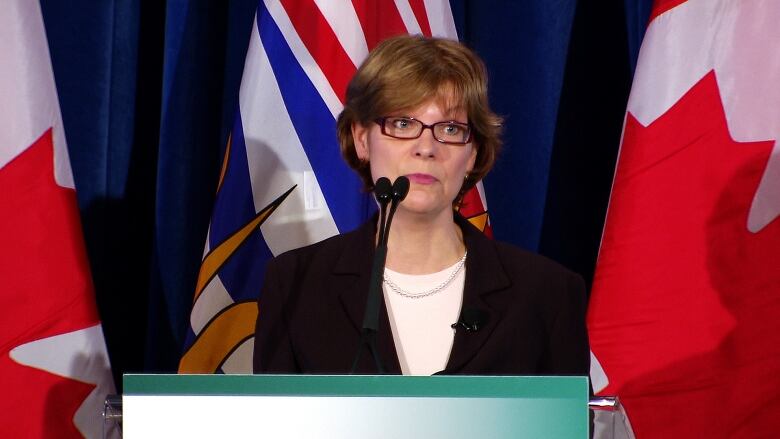Give elderly couples more say in choosing accommodations, says advocate
'I think we need to accept that people can make informed decisions'

British Columbia's advocate for seniors has called on the provincial government to allow greater flexibility for seniors to choose how they want to live their final years.
Isobel MacKenzie was responding theimage ofWolfGottschalkand his wife Anitain tears during a visit at a transition house.
The couple have been living apart for eight months because Wolf is required to receive a higher level of care because of his dementia diagnosis, whileAnita is living in assisted living at The Residence at Morgan Heights.
"I think itcertainly speaks to the need for us to be morecreativearoundhow we are going to allow couples tolivetogether that have different care needs," said Mackenzie on CBC Radio's B.C. Almanac.

Current provincial regulations administered by the health authorities require couples to live in a situation where they receive the maximum level of care for their own security, the safety of staff and the safety of other individuals living in the home.
The province has made changes to the Community Care and Assistance Act, but they are not yet in effect. Mackenzie said she hopes the changes will allow for couples to have more choice in living accommodations.
"I think we need to accept that people can make informed decisions. Ms Gottschalkcan make those decisions of behalf of her husband, to assume more risk of not being in a secure living in order to be together in assisted living."
NDP echos concerns
The NDPspokesperson for seniors, MLA SelinaRobinson, has sent Health Minister Terry Lake a letter asking the provincial government look into this case and immediately advise FraserHealth and other health authorities to better communicate with families that have loved ones in care.
"At a minimum they need to be inregularcommunicationwithfamilieswho are emergencywait lists. They need to explain to them what the challenges are and what the expectations are," said Robinson.
The Gottschalk family said they were not told that it would take eight months to find Wolf a subsidized bed.
"When he [Wolf] was put on the list, the family never expected it to take more than eight months. Their perception is thatFraserHealth forgot about them," said the MLA.

One of the concerns, says Robinson, is that the couple who have been married 62 years, could have their health deteriorate because of the extended separation.
"We know that when people are separated from their loved ones they actually become more frail," said Robinson. "This couple their health will deteriorate if they are distressed and concerned."
Fraser Health has told the Gottschalk's the reunification of the couple is a priority, but has not provided a timeline on when it will be done.
(PDF KB)
(Text KB)CBC is not responsible for 3rd party content












_(720p).jpg)


 OFFICIAL HD MUSIC VIDEO.jpg)
.jpg)



























































































